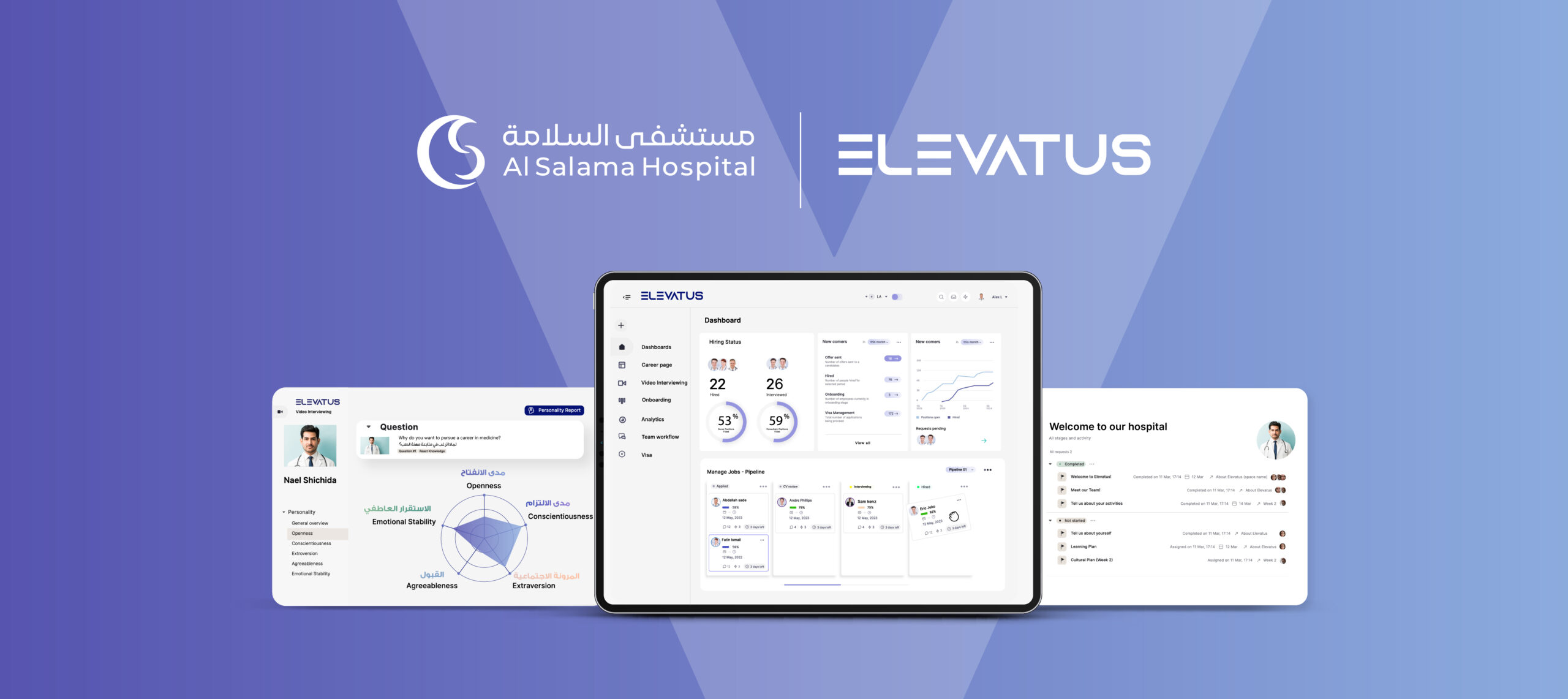
Tips and Tricks
5 Amazing Emotional Intelligence Interview Questions to Ask
June 9, 2022



Tima Rassool
Content Writer
Let’s face it: traditional interview questions just don’t cut it anymore. They might reveal a candidate’s experience and qualifications, but they fail to uncover their true character and emotional intelligence (EQ). As more companies prioritize cultural fit and soft skills, it’s essential to assess a candidate’s EQ during the hiring process.
But what exactly is EQ, you might ask? It’s the ability to recognize, understand, and manage emotions, both in oneself and in others. An emotionally intelligent employee can handle stress, communicate effectively, work collaboratively, and navigate difficult situations.
In this blog, we’ll explore 5 must-ask emotional intelligence interview questions that will help you evaluate a candidate’s EQ. By asking interview questions to measure emotional intelligence, you can find the right fit for your team. So, are you ready to take your interviews to the next level? Let’s dive in!
Why should you ask candidates emotional intelligence questions?
If you’re wondering why asking emotional intelligence questions is important throughout talent acquisition, then you came to the right place.
An employee’s performance is affected by high levels of emotional intelligence. Emotional intelligence interview questions help recruiters pinpoint the candidate’s ability to recognize and manage their own and other people’s emotions. This allows the candidate to identify and adjust their behavior to adapt to different situations.
For example, certain traits are required for all team members, regardless of their position. Emotional intelligent employees understand other people’s feelings, which allows them to thrive in teamwork. They establish solid relationships, communicate well with coworkers and clients, and are aware of their strengths and flaws. This makes them more open to feedback than employees with lower levels of emotional awareness.
All in all, employees with high emotional intelligence interact well with their teammates, value open communication, and accommodate well to change, making these abilities a crucial decision factor when trying to make a great hire.


Emotional intelligence interview questions to ask
Are you ready to break away from the boring, outdated interview questions? Get ready to assess a candidate’s emotional intelligence with these five powerful questions!
These questions are designed to reveal a candidate’s ability to handle stress, communicate effectively, work collaboratively, and navigate difficult situations. And the best part?
You can tailor them to fit your specific preferences and hiring needs. So, are you ready to take your interviews to the next level and find the perfect candidate for your team? Let’s get started!
Tell me about a situation where you faced a dilemma at work. How did you handle it, and what was the outcome?
As an employer, you want to hire someone who can handle tough situations and make effective decisions under pressure. That’s why you need to ask candidates to describe a situation where they faced a dilemma at work and how they handled it. It’s important to know if the candidate can think critically and find creative solutions to complex problems while also considering the impact of their decisions on the company and their colleagues.
By asking this emotional intelligence interview question, you can gain insights into the candidate’s problem-solving approach, communication and collaboration skills, and ability to adapt to unexpected situations. Plus, it’s always interesting to hear how candidates have tackled real-world challenges in their previous roles!
Describe a time when someone criticized your work. How did you react?
The way a candidate reacts to criticism can say a lot about their character and how they handle challenging situations. Do they take it personally and get defensive, or do they listen carefully and use it as an opportunity for growth and improvement?
This emotional intelligence interview question aims to assess the candidate’s ability to handle constructive criticism and how they respond to it. As a recruiter, it’s crucial to ask this question during an interview as it helps you evaluate the candidate’s emotional intelligence, self-awareness, and ability to handle feedback. Also, it helps you understand how the candidate copes with stress and how they maintain composure in challenging situations.


How would you handle a disagreement between two coworkers?
It’s not uncommon for disagreements to arise between coworkers. This is where emotional intelligence and problem-solving skills come into play.
That’s why this emotional intelligence interview question is so important. You need to know how the candidate would handle the situation if they couldn’t agree with someone. For instance, would they be able to navigate the situation with ease?
Ultimately, hiring managers use this question to gain insight into your ability to manage conflict and maintain a positive work environment. Plus, they can learn about their leadership skills and their approach to teamwork!
What would you do if a client contacted you to complain about the pricing of your product/service being too high?
Imagine this scenario: a client reaches out to your company with a complaint that your product or service is too expensive. How would you respond?
This emotional intelligence interview question is not only about assessing the candidate’s customer service skills, but it’s also a test of their ability to handle pressure and communicate effectively. It’s essential for the candidate to be able to listen to the client’s concerns, empathize with their situation, and provide them with a viable solution that meets their needs. Essentially, this question is critical for roles in sales, customer service, and account management.
Tell me about a moment when you disagreed with your supervisor/manager. How did you handle it?
As a recruiter, it’s important to find candidates who not only have the skills and experience necessary for the job but also possess strong interpersonal skills. Employees should always be prepared to face any conflicts in the workplace.
With this emotional intelligence interview question, recruiters can gauge how the candidate deals with disagreements with authority figures. Also, they learn whether the candidate has the emotional intelligence to approach the situation in a constructive and respectful manner. Plus, it can reveal how the candidate views conflict and their approach to finding a resolution.
How do recruiters assess a candidate’s emotional intelligence levels?


Following a few emotional intelligence questions, the candidate is assessed and evaluated as part of the hiring process. However, there are a few things and aspects to take into consideration.
First, give the candidate some time to reflect on personal experiences. Provide them with a hypothetical scenario and see how they react. Such as one that they will most likely face if you hire them. When your candidates discuss a previous experience, they should be able to elaborate and explain the whole situation.
Then, when your candidates respond to your questions, observe their emotions and body language. Notice if they are still upset or affected when mentioning negative feedback received from their manager, or they can explain what they learned and improved.
Also, focus your emotional intelligence questions on situations relevant to your company’s operations. Some emotional intelligence skills are more important than others in a different job position.
For example, if a salesperson does not respond to customer complaints, it shows they are indifferent and do not care. However, for a social media specialist, this answer might be a positive sign. So instead of replying instantly to a negative comment, they can contact the person and handle stressful situations professionally.
Finally, in life circumstances, avoiding disagreements might be advantageous. However, in a professional team, it indicates that the employee who avoids emotions can lead to long-term collaboration and performance issues.
To sum it up
Emotional intelligence is a superpower trait that top-notch employers crave in their candidates. The power to comprehend and control one’s emotions while navigating social interactions can transform the office vibe and enhance productivity and employee morale.
So, to get the perfect fit for your team, incorporating interview questions for emotional intelligence is crucial. These questions are a game-changer, allowing you to assess a candidate’s soft skills and how they would handle various office scenarios. With the right candidates onboard, you can craft a work environment that radiates positivity and makes everyone feel like a boss!
Need to find the best of the best? Let EVA-SSESS work its magic for you!
EVA-SSESS is a next-generation video interviewing software enabling businesses to pinpoint top talent and build diverse workforces quickly. It uses modern science and AI to help employers and recruiters identify top performers in a fraction of time – through unbiased, reliable, and secure video assessment interviews that save more than 90% of your time. Request a free demo today!
Turn top talent to employees fast
Hire, assess, onboard and manage top talent for every job. See how Elevatus streamlines everything; from acquire to new hire.
Request a demoAuthor



Tima Rassool
A wordsmith, storyteller, and content strategist – Tima is an MBA graduate with 6+ years of experience in the world of HR. With over 2,000 blogs under her belt, Tima's expertise and insights have helped businesses across the globe take their recruitment to the next level and stay ahead of the curve.
Don't miss a thing!
Stay one step ahead. Subscribe and get the latest updates, news, and insights from Elevatus straight to your inbox.







